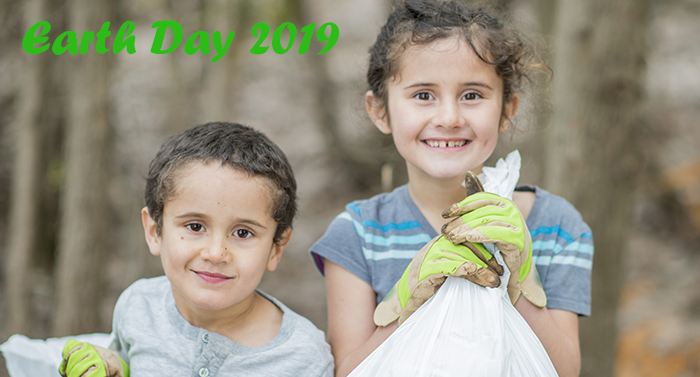Next year marks the 50th anniversary of Earth Day. One of my aunts has told stories about going out with her class to clean up a wooded area near her elementary school during that first Earth Day.
The idea for a day to focus on the environment came from U.S. Senator Gaylord Nelson, of Wisconsin, after he had witnessed the damage caused by a massive oil spill in Santa Barbara, California, in 1969.
Senator Nelson announced the idea for a “national teach-in on the environment” to the national media, and recruited Denis Hayes from Harvard as national coordinator. Hayes built a national staff of 85 to promote events across the land. April 22, falling between Spring Break and Final Exams, was selected as the date, according to earthday.org.
On April 22, 1970, an estimated 20 million Americans took to the streets and parks to demonstrate for a healthy, sustainable environment in massive coast-to-coast rallies, according to earthday.org.
Today, Earth Day is considered the largest secular observance in the world, celebrated by more than a billion people every year, “and a day of action that changes human behavior and provokes policy changes,” according to earthday.org.
How to Celebrate Earth Day
So what can you do on Earth Day – and every day, for that matter – to help save the Earth?
Here are just a few suggestions. (If you have any things that you do to help the environment, let us know by adding a comment.)
- Recycle!
- Reuse!
- Reduce!
- Stop using plastic straws
- Switch all of your bills to paperless
- Start a compost heap in your garden
- Walk or ride a bike
- Plant something
- Opt out of getting “junk mail”
- Change your lightbulbs to compact florescent or LEDs
- Use reusable water bottles/coffee cups/shopping bags
- Wash laundry with cold water
- Plant flowers and plants to help save bees
Remember: Even the smallest of things – like not littering or leaving the faucet running while brushing your teeth – can help!
Have a great weekend and a great Earth Day.
Best Regards,
Taylor



I reuse whatever plastic grocery bags we acquire and reuse them throughout the house in trash cans, as padding in mailing boxes and any others still left I cut them in strips to make balls of plastic yarn which I use to crochet picnic blankets and pillow covers for outdoor cushions. Can’t remember the last time I wrote a check. Unfortunately, despite of opting out of getting mail at home, many times over, the junk mail just won’t stop. I’ve also signed up for automatic and online bill pay and despite of it I still get bills in the mail just to let me know that I’m paying by automatic bill payment. Whatever I don’t use, I donate to someone that can use it and I refurbish or reuse anything I have use for. I can’t even remember the last time I I used any weed killer or other chemicals in my yard. I always unplug everything when not in use except for my refrigerator, freezer and microwave because even when turned off, as long as things are plugged in they still consume some energy; also referred to as phantom energy usage. I used to have electric bills over $200 a month despite turning everything off and have reduced my bills to under $100 a month by actually unplugging everything when not in use; my house is all electric, 3 bedrooms. Sometimes my electric is less than my water bill which I cannot reduce further as the base service charge cannot be reduced. I only drive (living 13 miles from anything) when I absolutely have to; trying to set appointments on same day along with grocery trips or anything else needed; living so far away from town I have no alternative available to me or I would use a bus or any other transportation available. Basically, I do whatever I can to reduce my carbon footprint as much as possible.
Fill a reusable tote bag with potting soil and plants seeds of leaf lettuce. Place it in a sunny space on a porch, deck, or walkway. Water as needed. In very little time, you can snip lettuce leaves for salads or sandwiches. Don’t pull from the roots, and the leaves will keep growing. When the plants get tall and produce tiny flowers, it’s time to pull them up and plant new seeds.
The 3 d’s don’t just mean reading, ‘riting, & ‘rithmatic, just as important are the other 3 – Recycle, Reuse, & Reduce! We take great joy in doing our part in practicing all 6.
Haven’t written a paper check to pay a bill in years, haven’t bought a postal stamp since the time the post office raised the rates twice in a 6 month span.
Our drinking straws are made of silicone, we was and reuse them.
We may not be able to do a lot of things because of our health but by God I’m not giving up on Mother Earth. My children are teaching their children as well.
We reuse the plastic grocery bags for our cat litter. We also use them in the bathroom garbage cans.
We also take the shampoo/conditioner/unused soaps from the motels. We then wait until we have a large amount and donate them to the homeless shelter. They are so grateful for the donations.